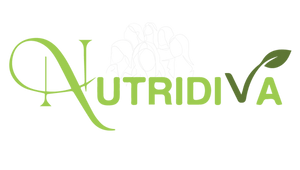PCOS Diet: Best Foods to Eat, Foods to Avoid & Tips for Managing Symptoms
Polycystic Ovary Syndrome (PCOS) and Diet: Managing Symptoms Naturally
Polycystic Ovary Syndrome (PCOS) is a hormonal disorder that affects millions of women worldwide, impacting fertility, menstrual cycles, and overall health. While there is no cure for PCOS, adopting a balanced diet for PCOS can help manage symptoms, improve insulin sensitivity, and enhance quality of life. In this blog post, we explore the best foods for PCOS, foods to avoid, and practical tips for creating a supportive PCOS-friendly diet plan.
Understanding PCOS and Its Impact
PCOS is characterized by hormonal imbalances, insulin resistance, and ovarian cysts. Women with PCOS often experience irregular periods, excessive hair growth, acne, weight gain, and fertility issues. A PCOS diet can play a crucial role in managing symptoms by balancing hormone levels and improving insulin sensitivity.
Foods to Eat for PCOS
A healthy, nutrient-dense diet can significantly improve PCOS symptoms. Here’s a list of foods that support hormonal balance and overall health:
-
High-Fiber Foods: Incorporate fiber-rich foods like fruits, vegetables, legumes, and whole grains to stabilize blood sugar levels, improve insulin sensitivity, and support digestion.
-
Lean Proteins: Include lean protein sources such as chicken, turkey, fish, tofu, and legumes. These help regulate appetite, maintain muscle mass, and stabilize blood sugar.
-
Healthy Fats: Add healthy fats like avocados, nuts, seeds, and olive oil. These fats aid hormone production and help reduce inflammation.
-
Low-Glycemic Index (GI) Foods: Opt for low-GI foods such as quinoa, brown rice, non-starchy vegetables (e.g., broccoli, spinach), and berries to avoid spikes in blood sugar and insulin.
-
Antioxidant-Rich Foods: Berries, leafy greens, tomatoes, and colorful vegetables are packed with antioxidants that reduce inflammation and oxidative stress.
-
Anti-Inflammatory Foods: Incorporate turmeric, ginger, garlic, and omega-3 fatty acids (from fish like salmon and chia seeds) to reduce inflammation associated with PCOS.
Foods to Avoid or Limit
Certain foods can exacerbate PCOS symptoms and should be limited or avoided:
-
Highly Processed Foods: Minimize processed foods, sugary snacks, sugary drinks, and refined carbs (e.g., white bread, pastries) that worsen insulin resistance and contribute to weight gain.
-
Saturated Fats: Limit saturated fats found in red meat, full-fat dairy products, and fried foods as they may exacerbate inflammation.
-
Excessive Caffeine: While moderate caffeine intake is generally fine, excessive caffeine can impact hormone levels and worsen PCOS symptoms for some women.
-
High-Fructose Corn Syrup: Avoid foods and drinks containing high-fructose corn syrup, as it can cause blood sugar and insulin spikes.
-
Alcohol: Limit alcohol consumption, as it can interfere with hormone balance and liver function.
Practical Tips for Creating a PCOS-Friendly Diet
-
Meal Planning: Plan your meals and snacks ahead of time to ensure balanced nutrition and avoid unhealthy choices.
-
Portion Control: Practice portion control to support weight management and maintain a healthy calorie intake.
-
Regular Meals: Eat regular meals and snacks throughout the day to maintain stable blood sugar levels.
-
Hydration: Stay hydrated by drinking plenty of water, which supports digestion and overall health.
-
Consultation: Consider consulting a registered dietitian or healthcare provider to create a personalized PCOS diet plan tailored to your needs.
Conclusion: Take Control of Your PCOS with a Balanced Diet
A balanced PCOS diet plays a vital role in managing symptoms and enhancing overall well-being. By focusing on nutrient-dense foods, avoiding harmful ones, and managing portion sizes, you can support hormone balance, improve insulin sensitivity, and improve your quality of life with PCOS.
Ready to start your PCOS-friendly diet journey? Incorporate these dietary recommendations into your daily routine and take control of your health.
Got questions or want to share your experiences? Join the conversation and connect with others managing PCOS through diet!






